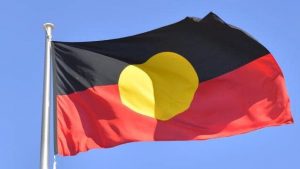Home » Commentary » Opinion » Why we should be worried by the High Court’s bizarre citizenship ruling
· Daily Telegraph
 When Prime Minister Kevin Rudd launched Closing the Gap in 2008, he can hardly have imagined that by 2020 so much of the gap would still need closing.
When Prime Minister Kevin Rudd launched Closing the Gap in 2008, he can hardly have imagined that by 2020 so much of the gap would still need closing.
But that gap – representing serious indigenous disadvantages in terms of health, education, and welfare outcomes – remains a thorn in the side of every federal government.
And now Scott Morrison has recommitted to redouble efforts to ensure all Australians – both indigenous and non-indigenous – enjoy similar standards of living in this country.
But the goal of forging a national community of citizens who all enjoy equal rights under the law has been blindsided by a High Court ruling that rights do not go with citizenship after all.
Two men born overseas, who were never Australian citizens, and who committed violent crimes, claimed the government could not deport them because they were not aliens.
Each claimed that their Aboriginal ancestry gave them special rights because of their connection to the land of Australia, exempting them from deportation under the law.
Only one of the men persuaded the court of his ancestry, but that was enough.
A majority of the justices ruled that the key factor was Aboriginal connection to the land, not citizenship.
Non-citizens who commit violent crimes in Australia are liable to be deported as aliens.
For most of us, that makes sense. We want the government to protect us from violent criminals.
And most of us also think that a non-citizen who commits such a crime forfeits any right to live in this country and mix in our community. That’s why crims who are citizens go to jail.
But the High Court has driven a coach and horses through the reasonable expectations of all right-thinking Australian citizens by creating a new category of “non-citizen non-alien”.
According to the justices, this new species of non-citizen non-alien now enjoys special protections – not just under the law, but under the Australian Constitution.
Every new Australian citizen calling this country home makes a formal commitment to uphold the rights and responsibilities that go with being a citizen. It’s a proud moment.
And enjoying equal protection under the law is one of those important rights enjoyed by all Australian citizens. We look to parliament to uphold those rights and to protect us.
In a liberal democracy, civil society, in which members of the community are held in common bonds of belonging, is only as strong as the institutions supporting those bonds.
We must retain confidence in our parliament, police, and courts because together they are the guarantors of the equal status before the law which is a privilege of citizenship.
But now the High Court has ruled that rights are quite separate from citizenship and that they extend to those who have never had any intention of becoming citizens at all.
In this bizarre ruling, unelected and unaccountable judges have made an effective change to the Constitution and the meaning of citizenship without regard to the wishes of parliament.
The court is effectively restricting the exercise of the rule of law with no regard to the wishes of citizens who elected members of parliament in the first place.
And by detaching rights from citizenship and conferring them on non-citizens, the court has diminished what it means to be an Australian citizen.
This erosion of citizenship, and a disregard for the wishes of the community, threaten not only to weaken the bonds of civil society but to divide the country along the lines of race.
Why we should be worried by the High Court’s bizarre citizenship ruling